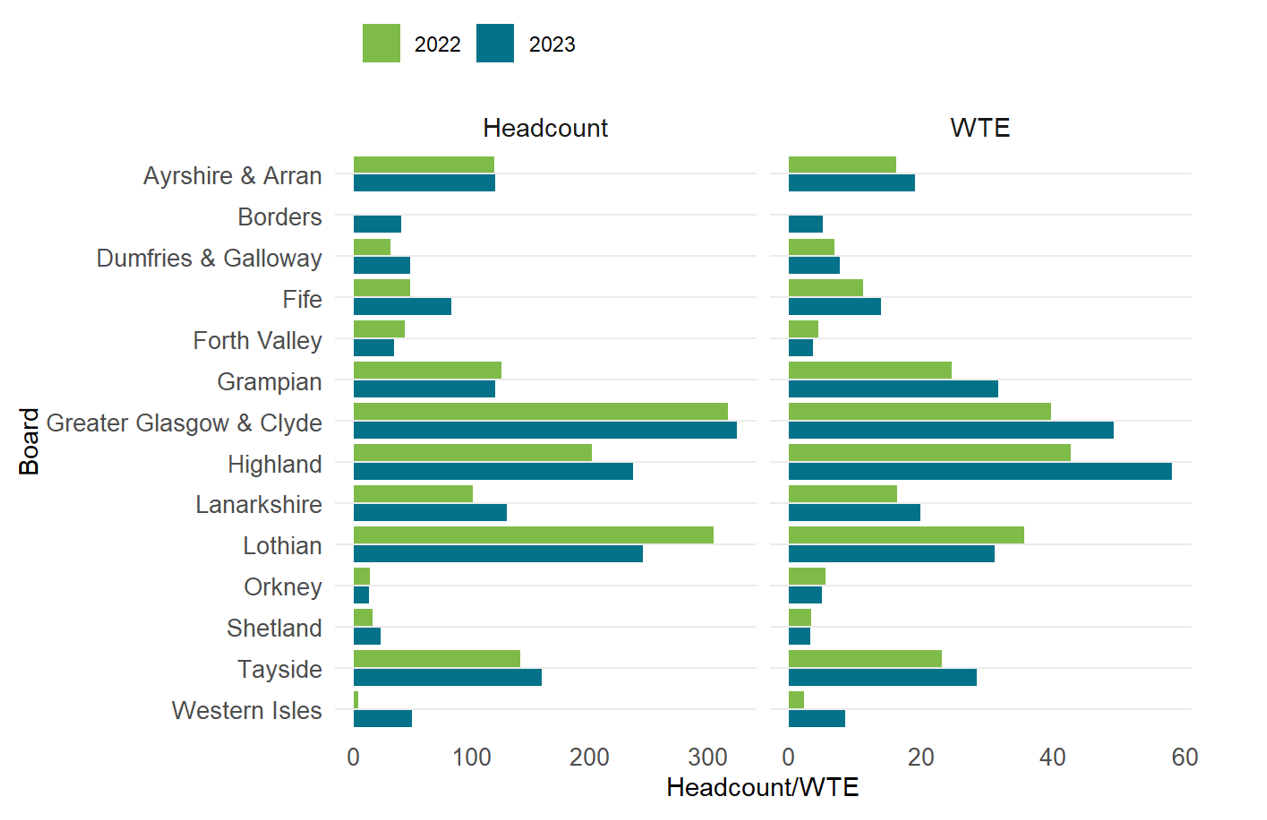- Home
- Data and reports
- Official workforce statistics
- All official statistics publications
- Primary Care Out of Hours Workforce Survey 2023
Primary Care Out of Hours Workforce Survey
2023 Annual Survey
Official Statistics
Published: 12 December 2023
About this release
This publication from NHS Education for Scotland (NES) presents results from the 2023 Primary Care Out of Hours Workforce Survey which has been designed to capture information from the Primary Care Out of Hours services in each NHS Board area. The survey is an important source of information to support workforce planning for Primary Care Out of Hours (OOH) services.
The report provides information including:
- General Practitioners (GPs) and nurses working in Primary Care Out of Hours services in the past year
- Challenges and experiences in filling shifts in the past year
- Use of multi-disciplinary teams within Out of Hours
Main Points
- The number of GPs working in Primary Care out of hours (OoH) services during the year ending 31 March 2023 was 1,530, equivalent to a whole time equivalent (WTE) of 284.7. Most boards reported an increase in GP numbers from the 2022 survey.
- In keeping with the 2021/22 survey’s findings, approximately 10% of GPs working in OoH services are working approximately 45% of the total hours recorded.
- Similar to the 2022 survey, male GPs were recorded as providing 58% of the total GP input to services.
- The average weekly input to services was 6.59 hours for all GPs, 8.49 hours for male GPS and 4.88 for females. Older GPs tend to work more weekly hours in OoH services than younger GPs.
- The number of nurses working in Primary Care out of hours (OoH) services during the year ending 31 March 2023 was 354, equivalent to a WTE of 155.
- Since the previous survey there has been an increase in the percentage of Agenda for Change Band 6 nurses and a decrease in the percentage of Band 7 nurses working in OoH services.
- Healthcare Support Worker was the most common multidisciplinary team role in OoH services, reported by nine Boards in total and being used for either all shifts or more than 50% of shifts by six of them.
- All 14 Boards reported that, for shifts that were filled in the year ending 31 March 2023, not all shifts were filled as planned. Five Boards report the use of longer shifts on a weekly basis to deal with unfilled shifts. Nine Boards reported having Nurses cover GP shifts, with two reporting that this occurred weekly.
GP Headcount and WTE in each Board 2022-23

Background
This survey has been developed over recent years in partnership with a range of stakeholders including: the Scottish General Practitioners’ Committee, the Royal College of General Practitioners, the Royal College of Nursing and the Scottish Practice Nurse Association.
Further Information
The results of previous surveys have been published by Public Health Scotland (PHS), and the results of earlier surveys can be found on PHS’s website.